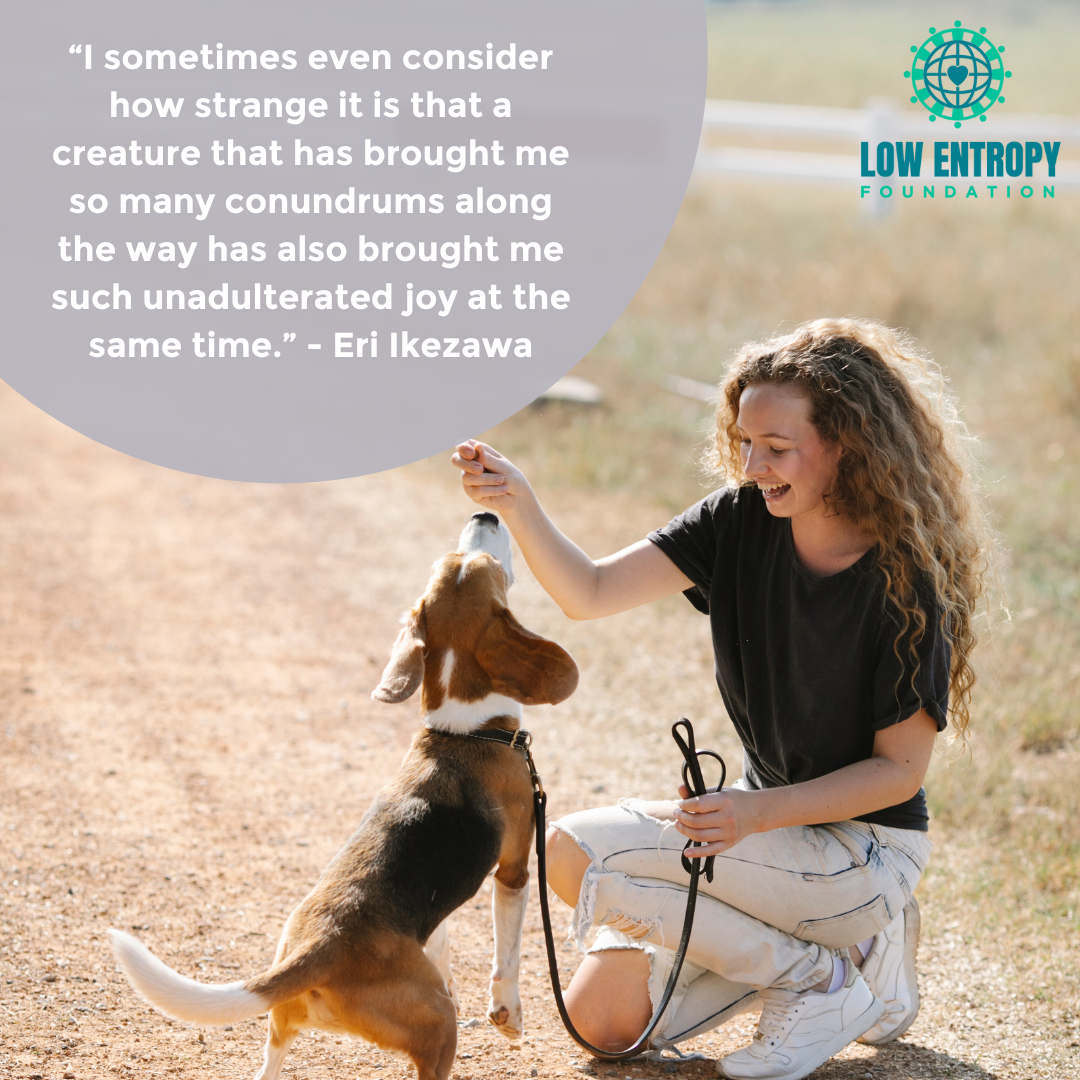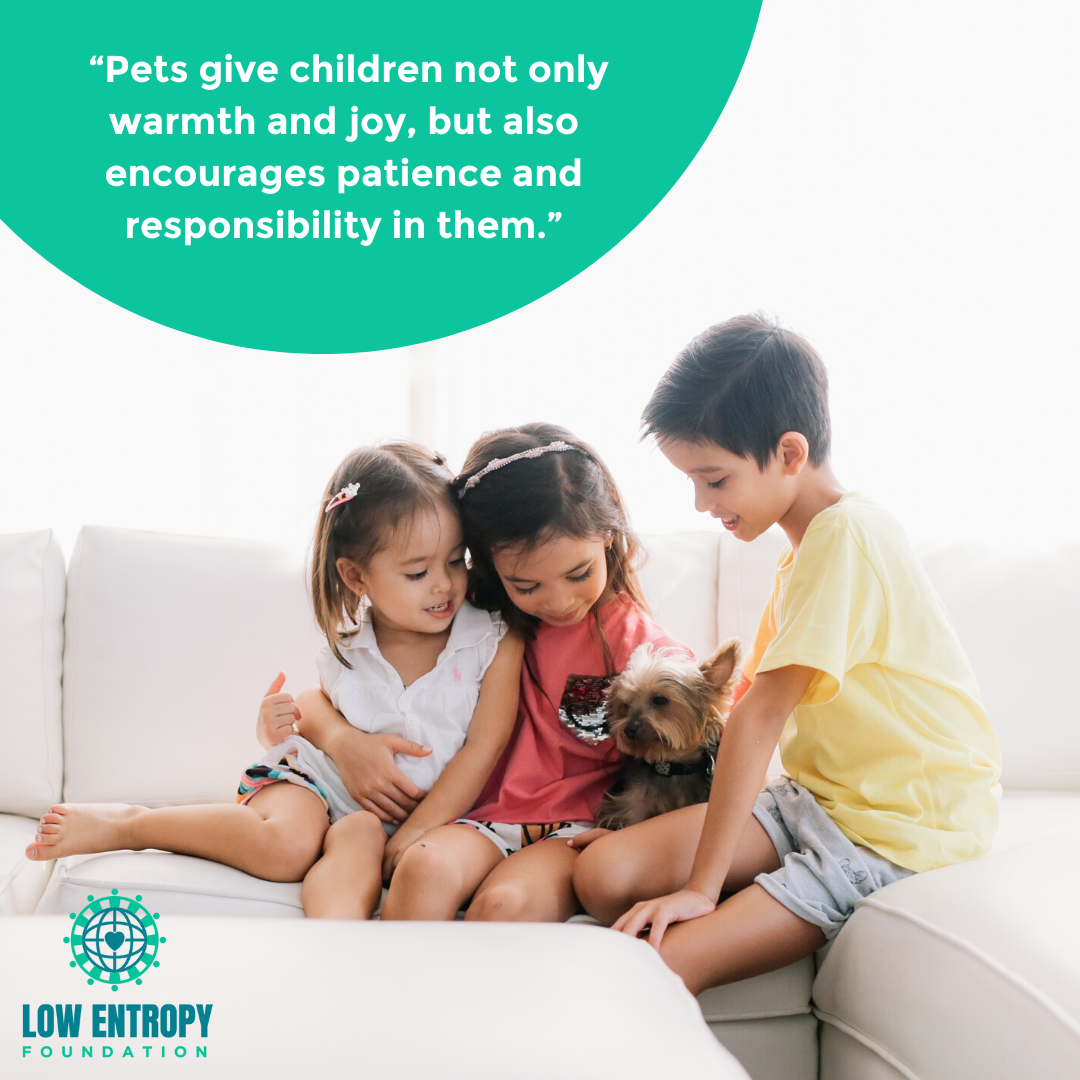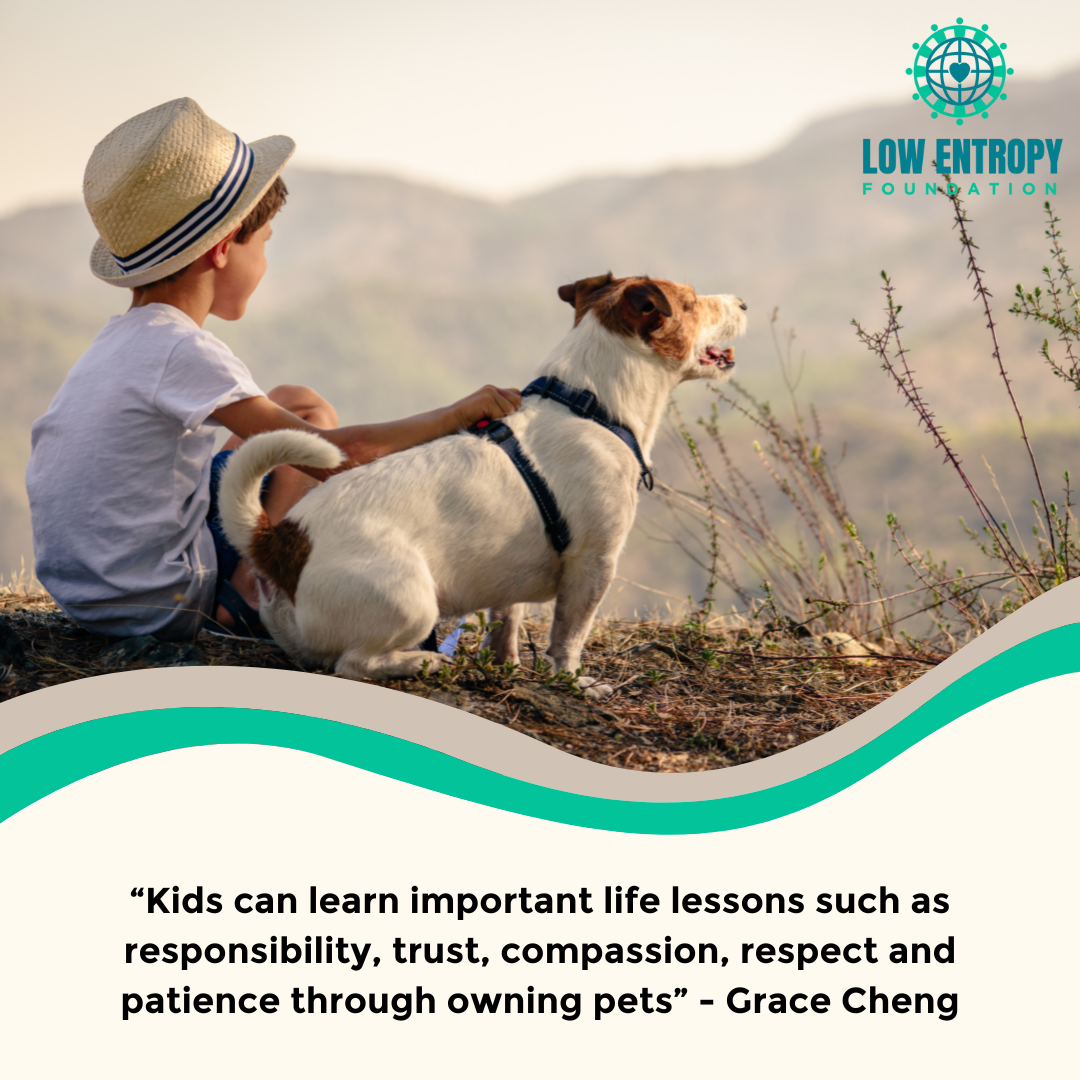Eri Ikezawa (she/her/hers), Low Entropy Volunteer Writer
After having owned a pet for most of my life, I can honestly say that having one has always been beneficial to me. Despite all of the hardships and challenges that certainly accompany being a pet owner, there is nothing more rewarding than to have a loyal, dedicated animal companion to come home to.
As I mentioned, my family and I have had a pet for most of my life. We got our first dog when I was eleven years old, a sweet golden retriever whom I had with me for my elementary school, high school, and university graduation before he passed on. My family and I were utterly devastated by the loss of him, a staple of our home for so many years, and my parents adamantly did not wish to have any more pets afterwards, the heartbreak having been too much for them.
However, we all noticed the empty spots left behind by our old furry friend, spaces that now seemed vaster than they used to be, the silence collapsing into our home gravely. And eventually, our hearts healed enough that we all agreed that we wanted another companion.
And so, I got my new golden retriever puppy at eight weeks old—small, fluffy, vulnerable and innocent. However, I noticed from the get-go that he seemed much sullener and sulkier after arriving to his new home than what I was used to seeing in puppies; I remember when we had first gotten our old puppy, he had been sad to leave his home where his mother, father, and former litter were, but he’d gotten well-adjusted quickly enough. So, I had been surprised to note that my new little puppy did not adapt quickly to his new home—but then again, I reminded myself, every individual is different.
I quickly realized that, after medical exams came back clear and it was confirmed he wasn’t suffering from any health ailments, that he just seemed to be an anxious individual. When he was stressed, he was prone to biting, barking and whining excessively. There were days where I was so confused and frustrated, absolutely beside myself, not knowing where I had gone wrong with him.
I had properly socialized him with other dogs from the moment I’d gotten him, he was properly crate trained, he’d been potty trained with extreme ease, I’d gone to multiple series of puppy classes with him and I used positive reinforcement. But no matter what I had done right, it felt as though I must’ve done more wrong because his anxious traits grew worse around the eight-month mark.
At that point, he grew a propensity for dog-related aggression—not something he’d demonstrated in the past—and my anxiety tripled with each month that went by. Not only did my consternation multiply, I also began to internalize everything, questioning what and how I could’ve done things differently to mold him into a better well-adjusted dog.
He’s now two and while he still needs work on certain areas of his behavior, he has improved significantly. His dog aggression has decreased, he lets me peacefully cut his nails and shave out his paw pads, and he is more trustworthy all around. He is still quite anxious, especially in uncertain or novel situations, but it has meant the world to me to see his progress.
He is often still a handful and there are days when his anxiety is palpable enough that I absorb it and become intensely anxious myself, but at the end of the day, I would never even consider surrendering him to a shelter—his weaknesses and all. Quite frankly, the pros outweigh the cons—by a landslide.
Firstly, it is truly rewarding—despite the hardships that come with the ownership of a pet as I had mentioned earlier, what you invest is what you get. The loyalty, adoration and dedication a pet has towards you is a direct result of the love, kindness and patience you demonstrate towards them. Each and every day I come home from work, exhausted and occasionally blatantly cranky, my mood instantly brightens when I see his big goofy smile and twinkling eyes greeting me at the door with a howl of excitement, his butt waggling intensely.
Sometimes, when I am sad, feeling out of sorts and world weary, I pat his fluffy body and soft head and the motion of stroking his luxurious coat mitigates that melancholy—a respite when I feel as though I’m just trundling through the motions.
I cannot say more about how rewarding and comforting it is to own a pet.
Secondly, as one might garner from what he and I have gone through historically as a pet and pet owner, it is truly challenging at times—it is no easy feat to get a pet and raise them from when they are a baby and nurture them into a well-adjusted older pet. It takes an infinite amount of patience and time, which sometimes people are not prepared or well-researched for, leading people to surrender their pets.
But I feel that over the past two years I have truly bore witness to the miracle of patience in waiting out a storm. Not only am I more appreciative of every obstacle we overcome together, but it has taught me to be more temperate and less stressed when I feel the tendrils of an impending tornado coming my way.
I sometimes even consider how strange—and ironically beautiful—it is that a creature that has brought me so many conundrums along the way has also brought me such unadulterated joy at the same time. And in recognizing that, I realized he has taught me an incredibly valuable life lesson—that is, sometimes, no matter what you do completely right, you don’t end up with the ideal or expected results. It has taught me the importance of appreciating that not everything in life is in my control; that the only thing I can control is how I react in order to adapt to it.
And with that said, I can confidently say that owning a pet has been the most unlikely blessing in my entire life.
—
My name is Eri Ikezawa and I have an extended minor in psychology and a major in linguistics. I’m still on the path to quelling questions about myself and the direction I want to head in, but in the meantime, I have always wanted to find a way to help others and contribute to a community dedicated to personal development and self-love.









